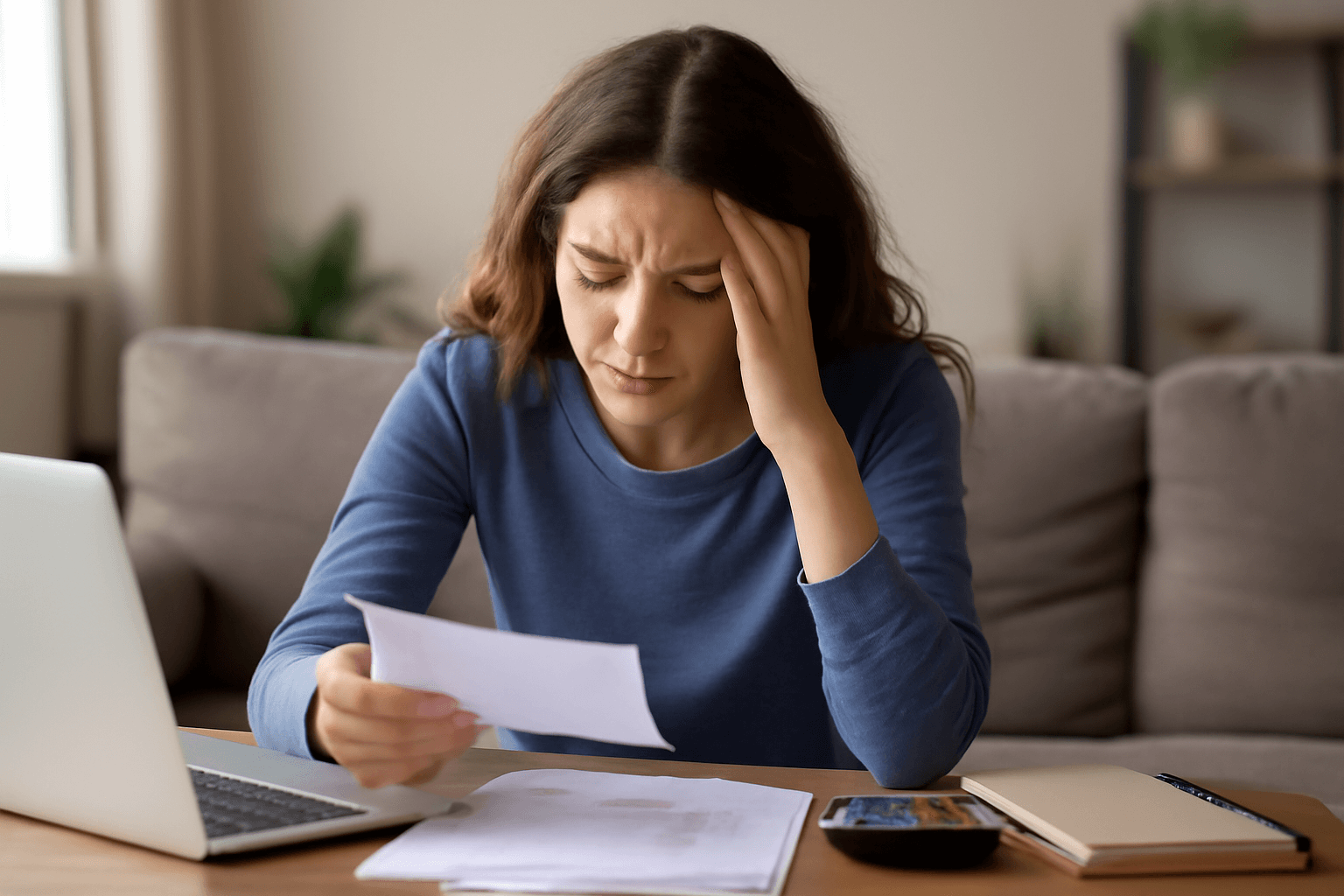Money is one of the leading causes of stress in people’s lives regardless of how much they earn. Whether it’s worrying about bills, feeling behind on savings, or facing debt, financial anxiety can impact mental health, sleep, relationships, and even physical well-being.
But here’s the good news: it’s possible to reduce that anxiety by building awareness, creating small routines, and shifting your mindset. You don’t need to be rich to feel in control you just need the right tools and habits.
This article offers practical strategies for recognizing and managing financial anxiety, even if you’re still figuring things out. No financial advice here just educational and empowering guidance to help you feel calmer and more capable.
What Is Financial Anxiety?
Financial anxiety is the feeling of worry, fear, or stress related to money. It can show up as:
- Constant fear of checking your bank account
- Avoiding bills or budgeting conversations
- Trouble sleeping due to money concerns
- Feeling overwhelmed or hopeless about debt
- Comparing yourself to others and feeling inadequate
This kind of stress isn’t limited to people with low income. Even high earners experience anxiety when they feel disconnected from their finances or unsure about the future.
How Financial Anxiety Affects Your Life
Anxiety about money doesn’t just live in your wallet it affects your entire life.
- Mental health: Anxiety can lead to burnout, low self-esteem, and even depression.
- Physical health: Stress hormones triggered by financial worry can lead to fatigue, headaches, and other symptoms.
- Relationships: Financial tension is one of the most common sources of conflict in families and couples.
- Productivity: Constant worry about money can make it hard to focus or make clear decisions.
Ignoring financial anxiety often makes it worse. That’s why taking small, proactive steps can lead to major relief over time.
Step 1: Name It, Don’t Shame It
The first step in managing any kind of anxiety is recognizing it. Give yourself permission to say:
“I’m feeling anxious about money, and that’s okay.”
This removes the guilt or shame that many people feel around their finances. You’re not alone and you’re not weak. Financial anxiety is normal, and it’s manageable.
Step 2: Identify Your Specific Money Triggers
Everyone experiences financial stress differently. Take time to reflect:
- What situations increase your anxiety? (Bills, debt, unexpected expenses?)
- What thoughts go through your head when money comes up?
- What habits do you notice? (Avoidance, impulsive spending, obsessive checking?)
Try journaling or making a list. Once you know your triggers, you can respond more calmly instead of reacting with panic.
Step 3: Create a Basic Financial Snapshot
A lot of anxiety comes from the unknown. You might assume things are worse than they really are. To fight this, build a simple snapshot of your current finances:
- How much money is coming in each month?
- What are your fixed expenses?
- What debts do you have?
- How much do you have saved (if any)?
You don’t need a complex spreadsheet. A notebook or phone app is enough to get clarity.
Facing the numbers can feel scary at first, but most people report feeling relieved after doing this step because now they know where they stand.
Step 4: Focus on What You Can Control
You may not be able to erase debt overnight or double your income but there are always small actions you can take today.
Examples of what you can control:
- Creating a basic budget
- Tracking expenses for the next 7 days
- Canceling unused subscriptions
- Setting a reminder to review your bank balance once a week
These little wins build momentum. And momentum builds confidence.
Step 5: Practice Money Check-Ins (Even If It Feels Uncomfortable)
Schedule a regular “money check-in” with yourself weekly or monthly. Use this time to:
- Review spending
- Adjust your budget
- Acknowledge progress
- Set intentions for the next period
You can make it cozy: light a candle, play music, drink tea. Turn it into a calm routine, not a stressful event.
Step 6: Learn Financial Basics at Your Own Pace
Sometimes, anxiety comes from not understanding how money works. You don’t need to become a finance expert, but learning key concepts can reduce fear.
Start by exploring:
- How budgeting works
- What interest is (especially for debt or savings)
- How to read a bank statement
- The basics of saving and investing
Use trusted books, websites, podcasts, or YouTube channels. Just 15 minutes a week can build your confidence over time.
Step 7: Separate Your Worth from Your Wallet
Your financial situation is not a measure of your intelligence, value, or success.
- You are not your credit score.
- You are not your debt.
- You are not your income level.
Everyone’s financial journey is different. Some people had early education, some didn’t. Some had help, others didn’t. Some faced unexpected medical bills or family emergencies.
Where you are today is just one part of your story—not the whole story.
Step 8: Build a Support System
Money anxiety often thrives in silence. Talk to trusted friends, family members, or online communities about your goals or struggles.
Even saying, “Hey, I’m trying to get better with money want to keep each other motivated?” can make a huge difference.
If the anxiety feels unmanageable, consider speaking with a licensed therapist or counselor especially one trained in financial stress.
Final Thoughts: Small Steps Lead to Big Peace
You don’t need to fix everything today. You don’t even need to have a full plan yet.
What matters most is this: You’re showing up. You’re trying. You’re learning.
Each small action—tracking your spending, canceling one subscription, having a money check-in tells your brain:
“I’m capable of change. I can do this.”
Financial anxiety doesn’t disappear overnight, but with time, care, and consistency, you can build a new relationship with money one that’s grounded in calm, clarity, and self-respect.
